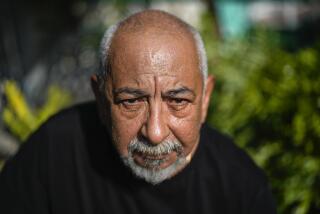Argentina’s Congress passes bill to allow payments on restructured debt
Argentina’s Congress on Thursday passed a bill to allow Buenos Aires to skirt a U.S. federal judge’s ruling and make payments to holders of restructured debt.
In a session that began Wednesday and lasted more than 14 hours, the bill to allow payments on those foreignheld bonds via an intermediary outside U.S. District Judge Thomas Griesa’s jurisdiction passed by a vote of 13499 with five abstentions in the lower house.
Argentina’s Senate approved the measure last week.
“This is a very important instrument,” Cabinet chief Jorge Capitanich said in his daily press conference.
The law offers a localpayment alternative for socalled exchange bondholders, who have been unable to collect on a debtservice payment that Argentina deposited in late June, including a $539 million deposit into bond trustee Bank of New York Mellon Corp.’s account at Argentina’s central bank.
BNY Mellon did not distribute that June payment to the bondholders because Griesa, a New York judge, ruled that it would be in contempt of his court if it did so.
The holders of restructured debt cannot collect the money they are owed because Griesa has ruled that Argentina must first settle with a small group of holdout hedge funds that refused to join the more than 92 percent of Argentina’s creditors who accepted steep haircuts in 2005 and 2010 debt restructurings.
In 2012, Griesa found in favor of those hedge funds led by Elliott Management Corp.’s NML Capital Ltd unit and Aurelius Capital Management, which demanded 100 cents on the dollar for Argentine bonds bought in the wake of Buenos Aires’ 2001 default.
He ordered Buenos Aires to pay the litigants more than $1.3 billion. Argentina’s appeal of the decision reached the U.S. Supreme Court in June, but the justices declined to hear the challenge.
The debt plan, which was announced by President Cristina Fernandez late last month, was fasttracked in Congress so a vote could be held before the next scheduled payment on those bonds is due on Sept. 30.
With this measure, Buenos Aires confirms “Argentina’s willingness to fulfill its financial obligations to the 92.4 percent of bondholders that participated in the restructurings,” Capitanich said.
He added that the government remains open to talks with the holdout creditors so it can service all of its debt under “fair, equitable and legal” conditions.
The bill passed Thursday calls for a unit of Argentine stateowned Banco Nacion to replace BNY Mellon as bond trustee. It also allows creditors to appoint their own paying agents to ensure they receive their money.
The original bill proposed that investors collect the debt payments via an Argentine financial intermediary, but opposition lawmakers included an option for creditors swap their bonds governed by U.S. legislation for others under French law and collect the payments in that European country.
Fernandez’s administration says that full payment to the hedge funds would lead other holdout bondholders to demand the same, creating a potential liability of some $15 billion, equivalent to half of Argentina’s foreignexchange reserves.
Argentina defaulted on roughly $100 billion in debt in December 2001 the largest sovereign default in world history amid a financial meltdown and economic depression.
The origins of the debt problem go back to Argentina’s 19761983 military regime, which presided over a 465percent expansion in public indebtedness.








